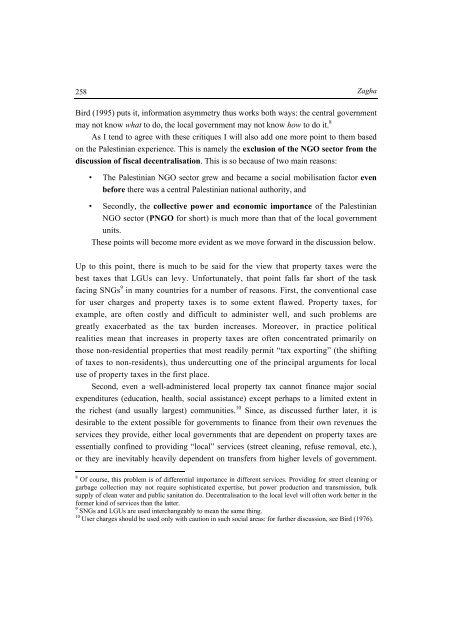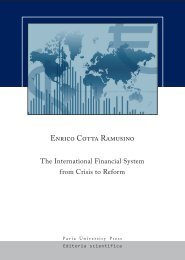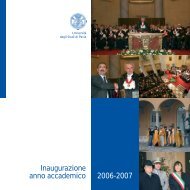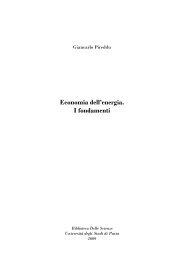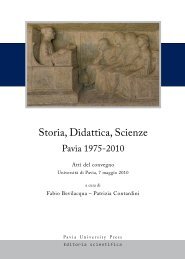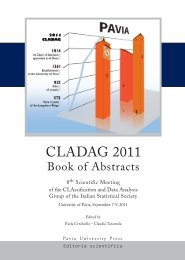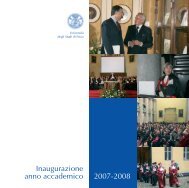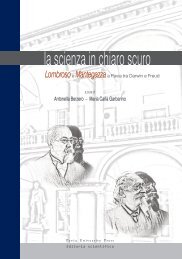The Palestinian Economy. Theoretical and Practical Challenges
The Palestinian Economy. Theoretical and Practical Challenges
The Palestinian Economy. Theoretical and Practical Challenges
You also want an ePaper? Increase the reach of your titles
YUMPU automatically turns print PDFs into web optimized ePapers that Google loves.
258<br />
Zagha<br />
Bird (1995) puts it, information asymmetry thus works both ways: the central government<br />
may not know what to do, the local government may not know how to do it. 8<br />
As I tend to agree with these critiques I will also add one more point to them based<br />
on the <strong>Palestinian</strong> experience. This is namely the exclusion of the NGO sector from the<br />
discussion of fiscal decentralisation. This is so because of two main reasons:<br />
• <strong>The</strong> <strong>Palestinian</strong> NGO sector grew <strong>and</strong> became a social mobilisation factor even<br />
before there was a central <strong>Palestinian</strong> national authority, <strong>and</strong><br />
• Secondly, the collective power <strong>and</strong> economic importance of the <strong>Palestinian</strong><br />
NGO sector (PNGO for short) is much more than that of the local government<br />
units.<br />
<strong>The</strong>se points will become more evident as we move forward in the discussion below.<br />
Up to this point, there is much to be said for the view that property taxes were the<br />
best taxes that LGUs can levy. Unfortunately, that point falls far short of the task<br />
facing SNGs 9 in many countries for a number of reasons. First, the conventional case<br />
for user charges <strong>and</strong> property taxes is to some extent flawed. Property taxes, for<br />
example, are often costly <strong>and</strong> difficult to administer well, <strong>and</strong> such problems are<br />
greatly exacerbated as the tax burden increases. Moreover, in practice political<br />
realities mean that increases in property taxes are often concentrated primarily on<br />
those non-residential properties that most readily permit “tax exporting” (the shifting<br />
of taxes to non-residents), thus undercutting one of the principal arguments for local<br />
use of property taxes in the first place.<br />
Second, even a well-administered local property tax cannot finance major social<br />
expenditures (education, health, social assistance) except perhaps to a limited extent in<br />
the richest (<strong>and</strong> usually largest) communities. 10 Since, as discussed further later, it is<br />
desirable to the extent possible for governments to finance from their own revenues the<br />
services they provide, either local governments that are dependent on property taxes are<br />
essentially confined to providing “local” services (street cleaning, refuse removal, etc.),<br />
or they are inevitably heavily dependent on transfers from higher levels of government.<br />
8 Of course, this problem is of differential importance in different services. Providing for street cleaning or<br />
garbage collection may not require sophisticated expertise, but power production <strong>and</strong> transmission, bulk<br />
supply of clean water <strong>and</strong> public sanitation do. Decentralisation to the local level will often work better in the<br />
former kind of services than the latter.<br />
9 SNGs <strong>and</strong> LGUs are used interchangeably to mean the same thing.<br />
10 User charges should be used only with caution in such social areas: for further discussion, see Bird (1976).


